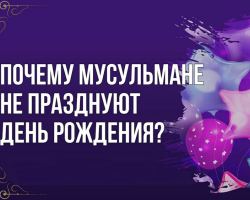In this article you will find an essay on the topic “War deprives a childhood child” with examples and arguments.
When the war comes, its former carelessness fades into the background. A small man who, in peacetime, could still not think about anything and play in the yard, seeks not only to survive under the circumstances, but also to protect his country on a par with adults. Below you will find an essay on the topic “Why does the war deprive the child of childhood?” About children-heroes of war with arguments and other examples.
There are also works on our site on the topic "Take care of nature" And on the topic "Take care of the Russian language".
Composition-reasoning 9.3, 15.3 on the topic “Why does war deprive the child of childhood?”: Arguments and examples from life

At school, children tell a lot about their peers, who in the war protected their homeland from the Nazis. They did not have childhood and everything that every child who grows in peacetime has. Here is an essay-reasoning 9.3, 15.3 on the topic "Why does the war deprive the childhood child?" With arguments and examples from literature and from life:
Examples when children quickly grew up, could be observed repeatedly in life and literature. Very often in years WWII Many adolescents attributed to themselves several years to go to the front. And those who were still too small helped the military and civilian in the rear. They covered the prisoners, helped recover to the wounded, saved those sentenced to execution.
And it is impossible to say that these children did not want to, as before, to carefully drive the ball in the yard, play catch -ups or dolls. But life turned out so that their growing up happened much earlier than that of their peers from other generations.
Legends about the girl come to this day - Zina Portnova. When she was with her grandmother, the Nazis occupied Belarus. The career of this brave child begins with the organization "Young Avengers", where it was elected a member of the committee.
The girl became famous for poisoning food in the dining room, where the retraining of German officers took place. As a result of this sabotage, about 100 fascists for 1 lunch. In order not to give herself and not be shot, Zina tried the poisoned soup herself and miraculously survived.
But one day, on one of the tasks, Portnov Caught. When Zina tried to run from captivity, her legs shot her. The Germans arranged brutal torture, but the girl, despite the efforts of the Gestapo, did not betray her own. The last interrogation was in the city of Polotsk. The child was groaned, cut his ears, but the girl did not say anything anyway.
Died Zina Portnova in January 1944 From the execution. But it is still mentioned among the most heroic children of wartime, who had happened to grow up ahead of time.
"Why does the war deprive the child of childhood?": Works on the children of war

Except Zina Portnova There were other children of the war who made feats against fascism. Our will always remember them. But how much does the war deprive the child of childhood? Here are the works of stories about children-heroes:
Nadia Bogdanova
When the girl became a scout in the partisan detachment, she was not even ten years old. Based on a beggar, she wandered among the Germans, and then brought valuable information to the headquarters. Quite often, the Nazis did not even suspect that the child was able to intentionally memorize information and transmit it “where should”.
They caught Nadia for the first time in 1941When she hung a red flag in occupied Vitebsk together with Vanya Zvintsov. In captivity, the child was beaten with ramrods and tortured, and then shot. The exhausted girl fell into the moat, but, as it turned out after, survived.
Second time Bogdanova was captured in 1943. She was doused with ice water in the cold, burned a five -pointed star on her back, but she continued to be silent and did not give the Germans any information. It all ended that the Nazis considered Nadia dead and threw in the snow. It was picked up and the locals came out. However, it was no longer possible to fight, because Nadia lost her vision. Already after the war, in the Odessa hospital, academician V.P. Filatov spent a lot of effort and time to return the heroine the ability to see.
Marat Kasei
He was 13 years oldWhen my mother died, and she and her sister were in a partisan detachment. It should be said that the Germans hung his mother for treating and hiding the wounded. When the detachment left the encirclement, Marat’s sister amputated his legs due to severe frostbite. But the boy refused the evacuation and remained to take revenge on his mother and sister.
AT 1944 His reconnaissance group was discovered by the Germans. Partner Marata He died almost immediately, and he was taken into the “ring”, intending to catch alive. When the boy ended the cartridges, he blew himself up with a grenade so as not to surrender and not to be at the risk of residents of a nearby Soviet village.
Wilor Chekmak
When the teenager noticed the Germans that they were approaching his partisan detachment, he shot from the rocket launcher, warning of danger, and then took a battle with the Nazis alone. When the cartridges ended, the guy let the German soldiers let the German soldiers as close to himself, and was blown up by a grenade. After the war, a birthday Vilora became Day of young defenders of Sevastopol.
You can talk endlessly about hero children. There are many of them, and every person of our country should remember their exploits. They had no childhood, but they did a lot for their Russians, and this is impossible not to be proud of.
Read on the topic:







